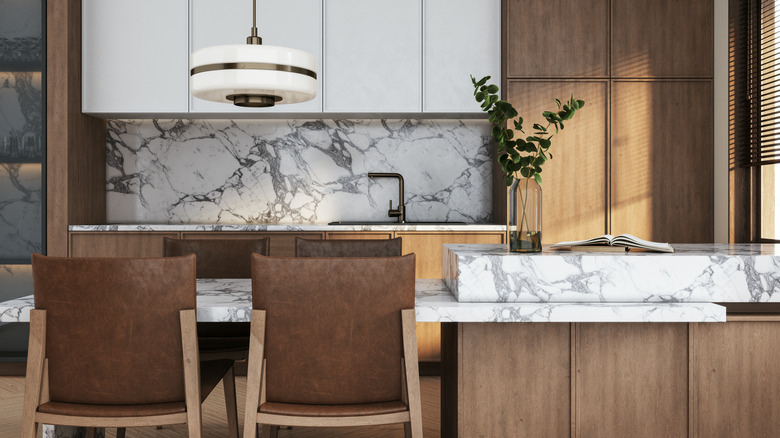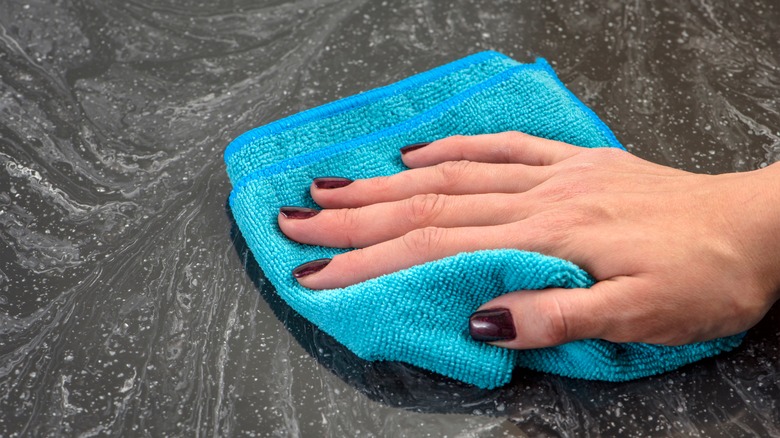The Popular Cleaner You Should Avoid Using On Marble Surfaces
You've gone for it — you opted to splurge on authentic marble countertops, because despite very nice looking alternative marble-like surfaces saturating the market, nothing holds a candle to the look of the real thing. Once installed, it is essential to protect your investment by understanding the proper care for these higher-maintenance counters to extend their longevity. When it comes to the common mistakes to avoid if you have marble countertops, using the wrong cleaner, such as the extremely popular disinfecting wipes, tops the charts.
While stunning, marble countertops are a very porous natural stone surface, which means that liquid can penetrate and the marble stains easily. In addition, marble is a relatively soft stone compared to granite or quartzite options, and is therefore more susceptible to damage, scratches, chips, and cracks. Considering the maintenance they require, especially for heavily-used kitchens, many homeowners decide they are not a good fit functionally, and with a hefty price tag to boot. Others decide they can live with the maintenance and the inevitable character (i.e. stains, marks, etc.) a true marble countertop will acquire over time, choosing the unmatched timeless aesthetic of the real deal. If you have taken the leap to enjoy incredible marble surfaces, learning to properly care for them is key to maximizing their lifespan, and of the many household items that should stay away from disinfecting wipes, your gorgeous marble countertop is one of them.
Why disinfecting wipes are bad for marble countertops
Disinfecting wipes are convenient for many purposes and sanitize high-touch surfaces, but because they are made with harsh cleaning chemicals, natural stone counters are not compatible with the wipes. Containing a high amount of citric acid and sometimes bleach, these acidic wipes will damage the surface of the porous marble by causing a deterioration of the surface's protective sealer and leaving etching, or dull marks and discoloration. This etching is more noticeable on polished or dark colored countertops, but all marble is affected when exposed to acid and harsh cleaners. Depending on the level of etching, it can be repaired with specialty products or sanding, but avoiding contact with damaging cleaning chemicals is the better proactive route to keeping your countertops in their best shape.
Rather than disinfecting wipes, it is recommended that you clean your marble countertops with a mixture of warm water and a mild dish soap. If you need to disinfect, add some diluted rubbing alcohol to the mixture to create a safe cleaner that will keep your marble countertops sanitized and sparkling without damaging the surface. Put the mixture in a spray bottle and apply to the marble surface with a soft microfiber cloth. Additionally, regularly re-applying sealer every three to six months will keep your countertops protected from minor spills and looking their best.

